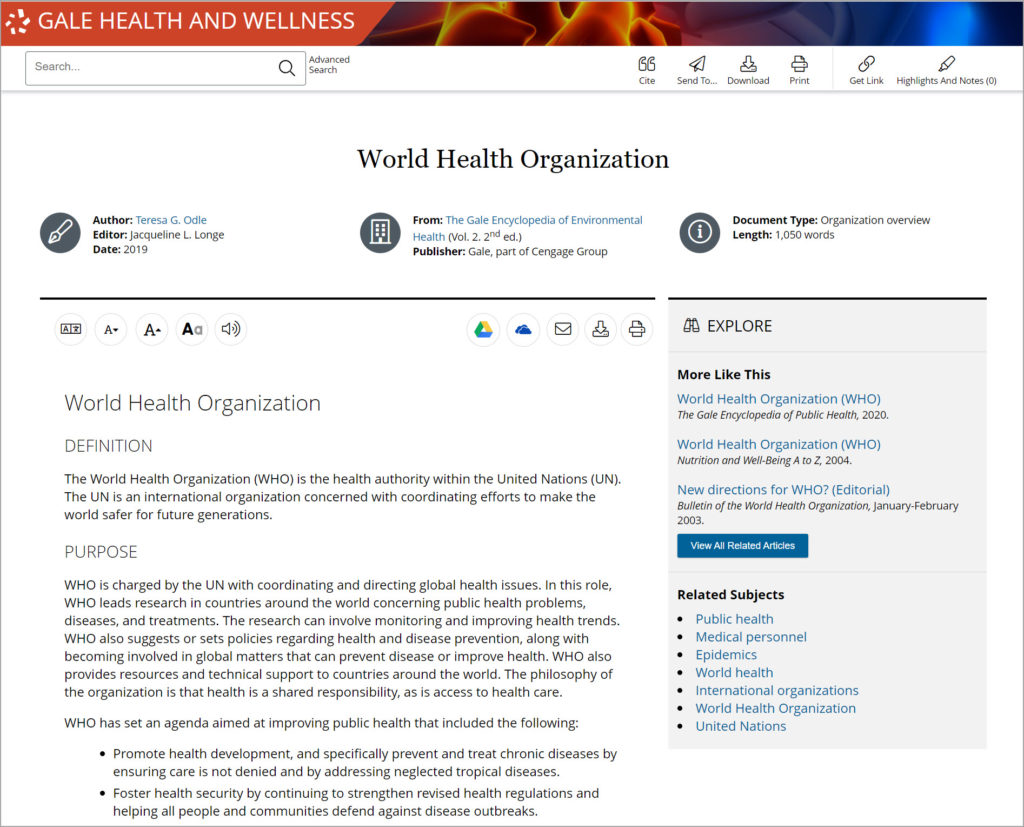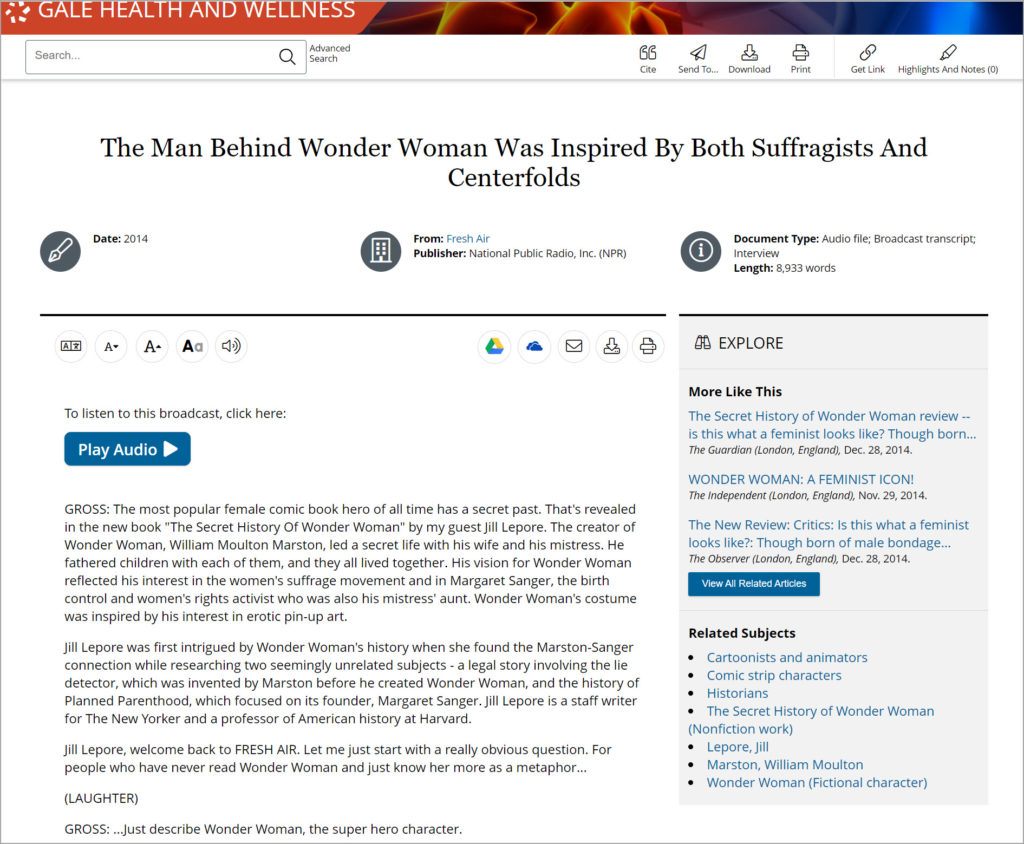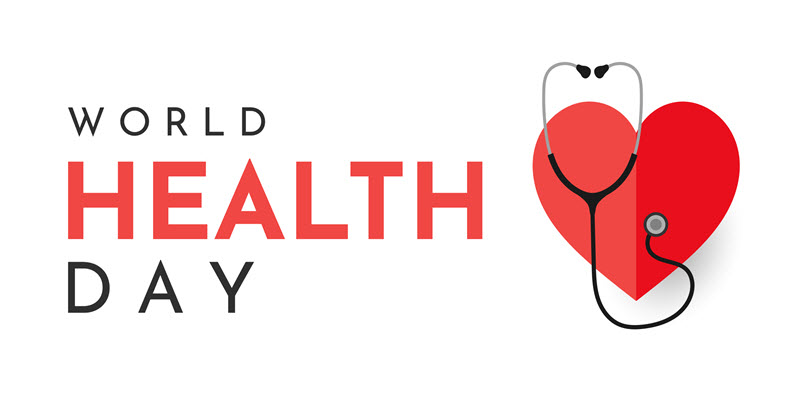| By Gale Staff |
The World Health Organization (WHO) was founded in 1948. To commemorate the establishment of this important global entity, we celebrate World Health Day on April 7. Each year, organizers select a theme to highlight certain areas of healthcare—this year, World Health Day will shine a light on nurses and midwives, the on-call, persevering professionals who revolutionized the healthcare industry and carried our world through a global pandemic.
Gale Health and Wellness can be used by librarians and their patrons to both recognize the holiday and raise awareness for healthcare workers. Gale Health and Wellness allows users to pursue information on a range of health-related topics—and because it’s Gale, you can always trust in the accuracy of the results. Within one database, you’ll find medical journals, magazine articles, audio files, and other forms of media. Gale Health and Wellness adapts to all research levels, so everyone in your community can engage in celebrating World Health Day.
Showcase the History of the World Health Organization
Throughout the COVID-19 pandemic, we all heard a lot about the WHO, but how much do we know about the organization’s founding and its mission? The World Health Organization is a subsidiary of the United Nations and, as such, serves as an unbiased authority for healthcare recommendations and global response to health-related issues. Gale Health and Wellness helps explain the WHO’s origins via an easy-to-read summary.

The WHO represents 195 member states, with offices in nearly 150 countries. After the United Nations was established following World War II, its member nations quickly saw the need for a global health organization, recognizing that humanity has a duty to promote health and access to healthcare. At the time of its founding, the WHO prioritized a global malaria response, advocated for women’s healthcare, tackled tuberculosis and other prevalent diseases, and addressed nutrition concerns around the world. Some of these initial topics remain central to the WHO’s work, but the organization adapts its priorities as needed for new crises (such as the onset of the COVID-19 pandemic).
Recognize the Contributions of Nurses
You can find thousands of resources that demonstrate how the field of nursing revolutionized modern healthcare. Even before the pandemic, nurses were in short supply, and yet those in the role are taking on more responsibility as the healthcare industry evolves. Nurses don’t often get the credit they deserve, but they possess first-hand expertise in the different needs of patients and clinicians, and they often provide a line of critical communication between the two parties.
Take, for example, Virginia Henderson, a 20th-century American nurse who helped develop fundamental ideas behind nursing care. Henderson believed that nurses should put patient independence first, providing support and clinical guidance toward recovery. She is credited with redefining the role of the modern nurse and is instrumental in the idea of a patient-centered approach to healthcare.
Learn About the Important Role of Midwives
Global data shows that the U.S. maternal mortality rate is higher than in other high-income nations. However, midwives are a key part of the solution to this problem. Midwives help improve the overall health of pregnant mothers. They also ensure that mothers and their newborns have support during the birthing process. And yet, many policies don’t cover midwives, forcing mothers to pay out of pocket for their care.
Regardless, midwives have had a hand in changing the health industry for the better. Consider Margaret Sanger, the nurse midwife called “the mother of the birth control movement.” Sanger was a major player for women’s rights, though she was frequently jailed and harassed throughout her career. Sanger’s beliefs are controversial, but she was a pivotal figure for accessible contraceptive care in the United States (and she may have been an inspiration for the character of Wonder Woman).

What better way to honor healthcare workers than by reinforcing the importance of health literacy and highlighting some of the industry’s heroes? With Gale, your patrons won’t fall victim to politicized health information (as they might with traditional search engines).
Ready to inspire and educate the next generation of healthcare workers? If your library doesn’t currently subscribe to Gale Health and Wellness, request a trial to demo the database.


